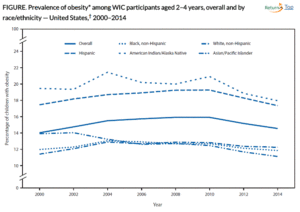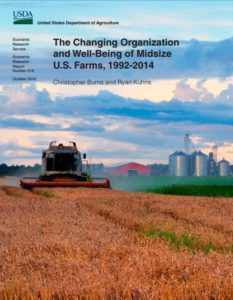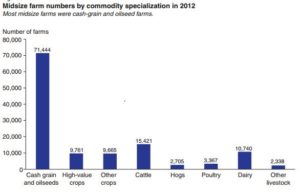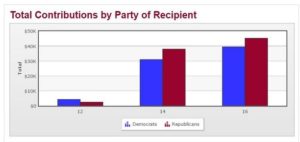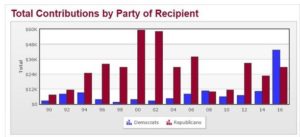FoodNavigator.com does occasional “special editions” in which they collect articles on particular topics from the perspective of their food-industry audience. This one is on food allergies and intolerances, about which remarkably little is known. If you are allergic or intolerant, the best you can do is hope for an accurate allergy test or do everything you can to avoid the food that triggers reactions. Good luck with that since allergies are hard to diagnose and allergenic ingredients sneak into a great many foods and are not always revealed on labels.
Food allergy is on the rise in many countries, but how many people are impacted in the US? We’ve collected some facts and figures from Food Allergy Research and Education (FARE), the world’s largest private source of funding for food allergy research; the CDC (Centers for Disease Control and Prevention); and NIAID, the lead institute at the National Institutes of Health conducting research on food allergy… Display [this site has basic statistics on prevalence and basic definitions of terms]
The lowdown on food allergy and intolerance: In conversation with Dr Steven Taylor: Most researchers agree that the prevalence of food allergies is increasing in the US. Yet the amount of money spent on finding out why is surprisingly low, says one food allergy expert… Read
Soup-To-Nuts Podcast: Is low-FODMAP the new gluten-free? For the 45 million Americans who suffer from irritable bowel syndrome, identifying food that they can safely eat without triggering a flare up is a source of deep frustration that also could be a sizable market opportunity for innovative food and beverage companies that can provide an easy solution… Listen now
Allergen-friendly, free-from claims offer marketing potential beyond conventional food, beverage: With the number of Americans with food allergies and sensitivities increasing, free-from claims have become du jour in the conventional food and beverage space, but they remain relatively rare in the supplement segment and as such offer manufacturers a powerful tool to set their products apart. .. Read
Leadbetter’s realigns to focus on allergy-friendly manufacturing: ‘Our growth curve is very steep’: San Francisco-based Leadbetter’s Bake Shop has stopped making English muffins, its flagship product, and changed its name to Better Bakeries as it focuses on building an allergy-friendly food manufacturing and co-packing business designed to bridge the gap between Mom & Pop scale operators and the big guns in gluten-free… Read
Elevation Brands CEO: Gluten-free bakery is saturated, but there’s a ton of white space in other allergy-friendly categories: The world will probably keep turning without another gluten-free cookie or cracker, but there is a ton of white space for allergy-friendly foods in other parts of the store, and untapped opportunities in c-stores, club stores, schools, and in Mexico, where the gluten-free retail market is set to “explode,” says the CEO of Elevation Brands, the parent company of Ian’s. .. Read
‘First’ entirely gluten-free dining hall opens on US college campus: Kent State University claims to have opened the first certified gluten-free dining hall on a college campus… Read
Gluten-free products are evolving to be more nutritious, flavorful, Firebird Artisan Mills says: The gluten free market in the US remains hot, but as the category becomes more crowded, manufacturers must offer products with added appeal to stay competitive – such as a protein boost from pulses or an added dose of fiber and flavor with ancient grains, according to experts… Watch now
PepsiCo rolling out gluten-free Quaker oatmeal range across US retail: National distribution under way following limited launch in selected stores late last year… Read
Enjoy Life Foods: Dedicated allergy-friendly sets in the natural aisle are the best way to merchandise free-from foods: With one in 13 children diagnosed with a food allergy in the US*, ‘allergy-friendly’ foods are now infiltrating every category in grocery. But right now, it still makes sense for most retailers to merchandise them in a dedicated set rather than spreading them around the store, unless you have very clear signage, says Enjoy Life Foods… Watch now
Early introduction of allergens reduces food allergies, suggests study: Researchers say they have “moderate certainty” that introducing allergenic food such as peanuts or egg at an early age reduces risk of developing allergies… Read
Digestive issues attributed to lactose intolerance may be caused by A1 beta-casein protein, suggests study funded by a2 Milk: New clinical research – funded by the a2 Milk Company – lends credence to its claims that many consumers who believe they can’t tolerate lactose (milk sugar) should really be blaming their digestive discomfort on the A1 beta casein protein in milk products instead. However, more human data is needed before this moves beyond the realm of theory into fact, says the National Dairy Council… Read
Quinn Snacks removes more than gluten from pretzels, shows consumers its supply line: Historically consumers who wanted a gluten-free alternative to a wheat-based product had to sacrifice nutrition, taste or accept the presence of other common allergens in the ingredient list. .. Read
60-second interview, Beneo: Is rice still the first choice in gluten-free recipe formulation? Rice flours and starches dominated the first generated of gluten-free goods, particularly in the bakery segment, but are they still the #1 choice in formulators’ toolkits? FoodNavigator-USA caught up with Pierre Donck, regional product manager at rice ingredients specialist Beneo Inc, to find out… Read

